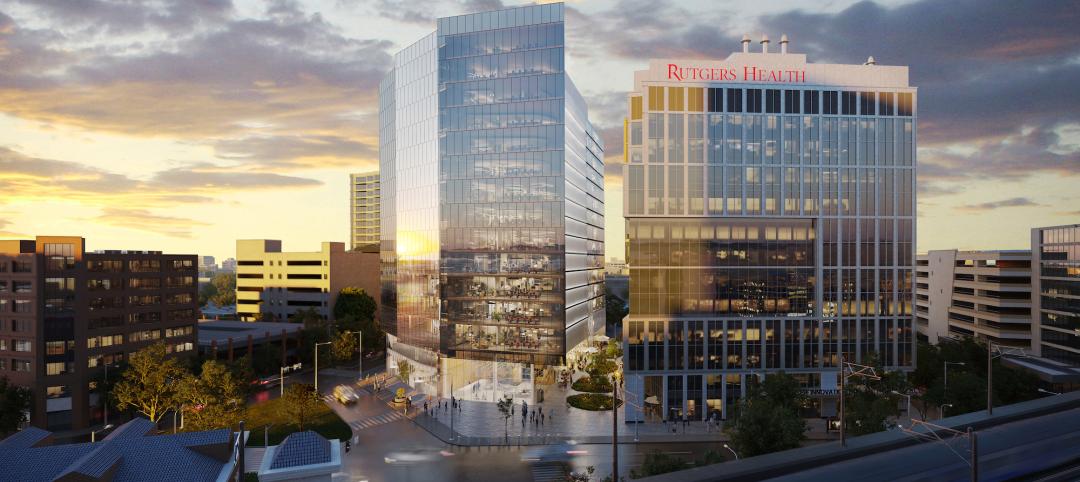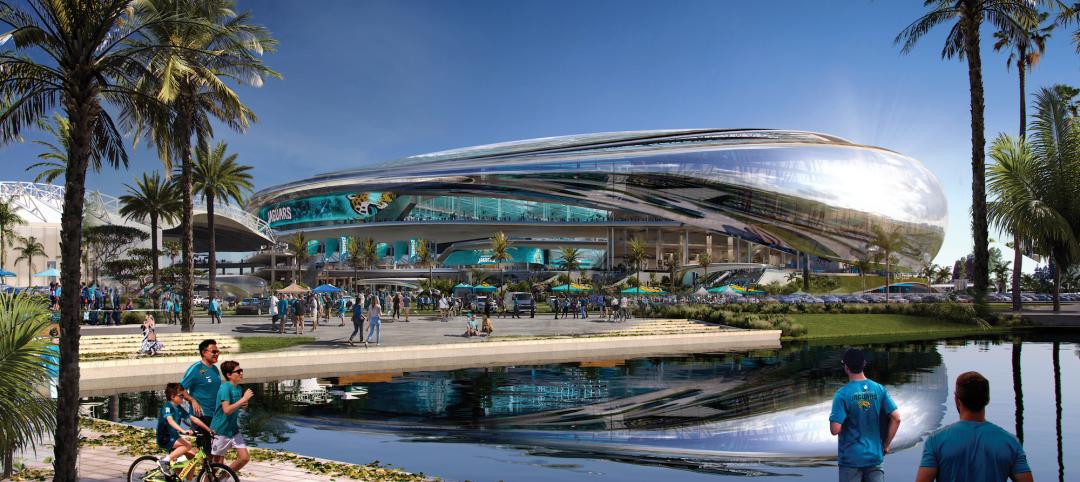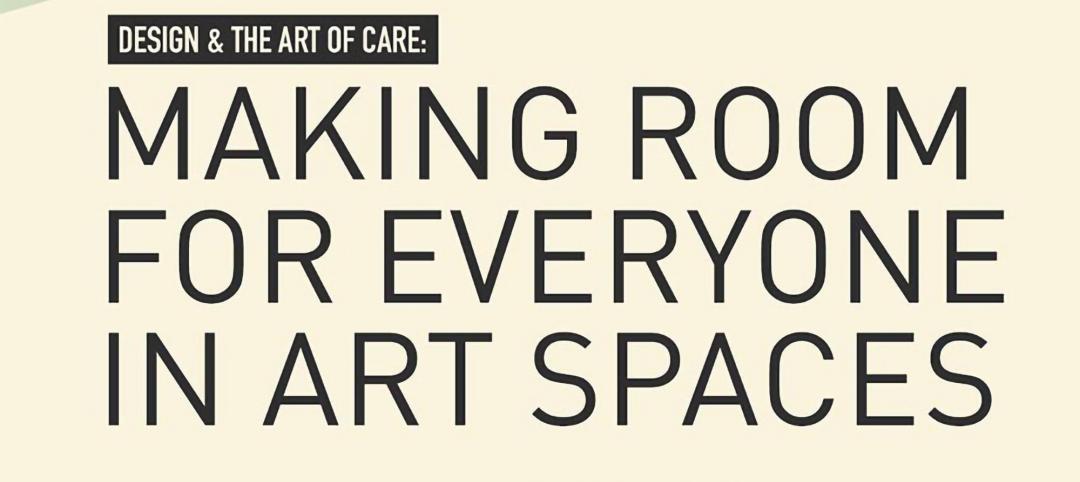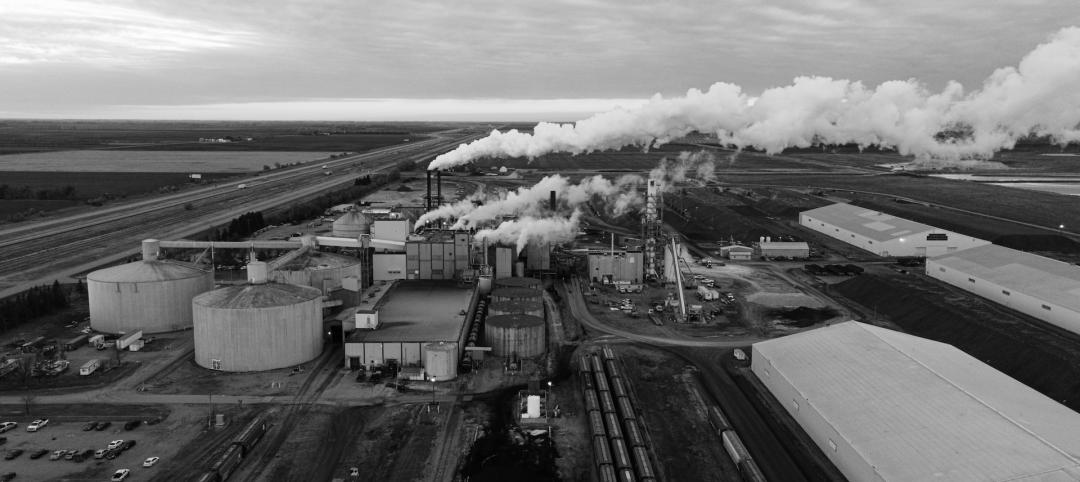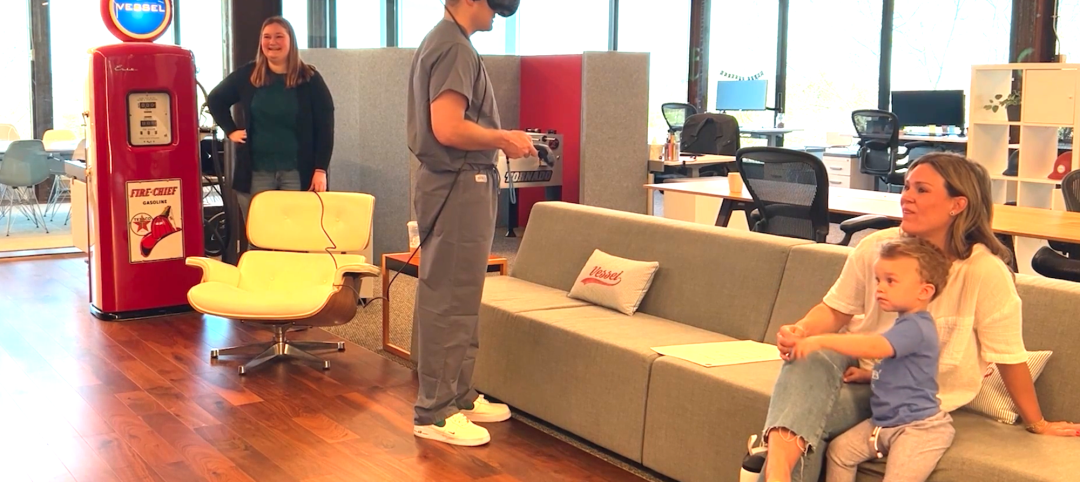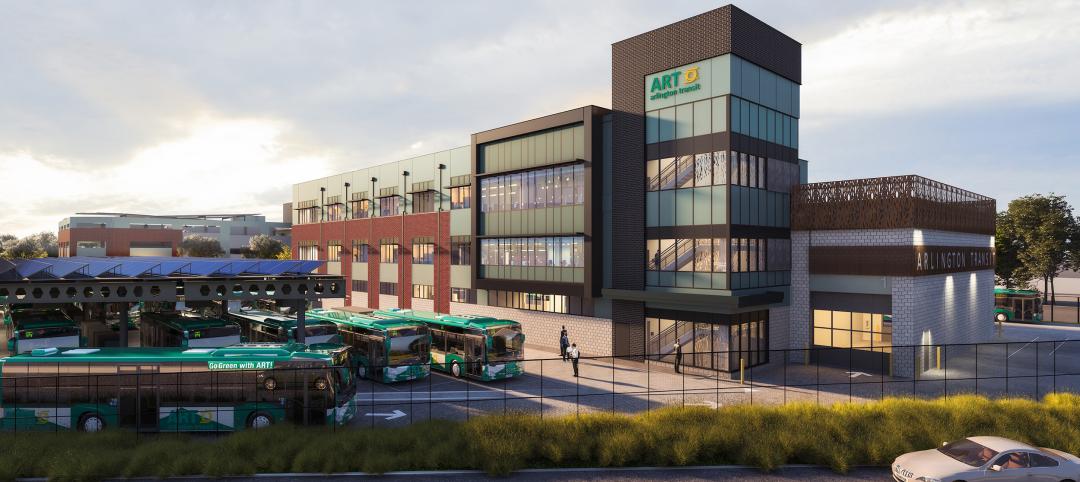International design firm Perkins Eastman and EwingCole announced the release of their new joint white paper “Where Are We Now?: Elevating Design Practice through Design Research.” The paper is co-authored by Emily Chmielewski, EDAC, Associate and Senior Design Researcher at Perkins Eastman, and Nicholas Watkins, Ph.D., Director of Research at EwingCole.
The paper takes an in-depth look at the current state of the design research field, dissects the many challenges researchers face, and contemplates broad solutions for advancing the practice of design research for the overall betterment of the architectural design field.
In March 2016, the Perkins Eastman and EwingCole research teams, led by Chmielewski and Watkins, developed and instituted a comprehensive online survey of 29 questions, in partnership with the Environmental Design Research Association (EDRA). The survey was available online for three weeks and was completed by a mix of students, educators, designers, and design research professionals. The results of that survey were then presented at the 47th Annual EDRA Conference (EDRA47), in Raleigh, NC.
The value of credibility of design research, research methods, and knowledge, sharing, and sustainability of design research in practice are a few of the topics the survey’s questions focused on.
At EDRA47, the teams engaged in conversation with various conference attendees about the many challenges related to conducting design research as well as solutions for promoting the incorporation of design research in design delivery. The survey’s findings, combined with input from the EDRA conference, informed the content produced for “Where Are We Now?”
According to Watkins, “A key challenge for all researchers in practice is to communicate our studies’ findings in such a way that attracts the attention of designers and clients, as well as conveys insights that can effectively impact the design industry. One of our intentions in writing this paper was to help our industry peers in tackling those challenges, and consequently, finding more receptive audiences for their important work.”
The entire white paper is available for free download at www.perkinseastman.com/white_papers and EwingCole - Where Are We Now Whitepaper.
Related Stories
Laboratories | Jun 23, 2023
A New Jersey development represents the state’s largest-ever investment in life sciences and medical education
In New Brunswick, N.J., a life sciences development that’s now underway aims to bring together academics and researchers to work, learn, and experiment under one roof. HELIX Health + Life Science Exchange is an innovation district under development on a four-acre downtown site. At $731 million, HELIX, which will be built in three phases, represents New Jersey’s largest-ever investment in life sciences and medical education, according to a press statement.
Sports and Recreational Facilities | Jun 22, 2023
NFL's Jacksonville Jaguars release conceptual designs for ‘stadium of the future’
Designed by HOK, the Stadium of the Future intends to meet the evolving needs of all stadium stakeholders—which include the Jaguars, the annual Florida-Georgia college football game, the TaxSlayer.com Gator Bowl, international sporting events, music festivals and tours, and the thousands of fans and guests who attend each event.
Architects | Jun 22, 2023
Keith Hempel named President of LPA Design Studios
LPA Design Studios today announced the promotion of Chief Design Officer Keith Hempel, FAIA, to president of the 58-year-old integrated design firm. Hempel, who joined LPA in 1995, has been an integral part of the firm’s growth, helping to develop an integrated design process that has produced industry-leading results.
Performing Arts Centers | Jun 20, 2023
Designing arts spaces that curate inclusivity
GBBN's Julia Clements and Marcene Kinney, AIA, LEED AP, talk tips for designing inclusive arts spaces.
Industrial Facilities | Jun 20, 2023
A new study presses for measuring embodied carbon in industrial buildings
The embodied carbon (EC) intensity in core and shell industrial buildings in the U.S. averages 23.0 kilograms per sf, according to a recent analysis of 26 whole building life-cycle assessments. That means a 300,000-sf warehouse would emit 6,890 megatons of carbon over its lifespan, or the equivalent of the carbon emitted by 1,530 gas-powered cars driven for one year. Those sobering estimates come from a new benchmark study, “Embodied Carbon U.S. Industrial Real Estate.”
Virtual Reality | Jun 16, 2023
Can a VR-enabled AEC Firm transform building projects?
With the aid of virtual reality and 3D visualization technologies, designers, consultants, and their clients can envision a place as though the project were in a later stage.
Mechanical Systems | Jun 16, 2023
Cogeneration: An efficient, reliable, sustainable alternative to traditional power generation
Cogeneration is more efficient than traditional power generation, reduces carbon emissions, has high returns on the initial investment, improves reliability, and offers a platform for additional renewable resources and energy storage for a facility. But what is cogeneration? And is it suitable for all facilities?
Office Buildings | Jun 15, 2023
An office building near DFW Airport is now home to two Alphabet companies
A five-minute drive from the Dallas-Fort Worth International Airport, the recently built 2999 Olympus is now home to two Alphabet companies: Verily, a life sciences business, and Wing, a drone delivery company. Verily and Wing occupy the top floor (32,000 sf and 4,000 sf, respectively) of the 10-story building, located in the lakeside, work-life-play development of Cypress Waters.
Transit Facilities | Jun 15, 2023
Arlington, Va., transit station will support zero emissions bus fleet
Arlington (Va.) Transit’s new operations and maintenance facility will support a transition of their current bus fleet to Zero Emissions Buses (ZEBs). The facility will reflect a modern industrial design with operational layouts to embrace a functional aesthetic. Intuitive entry points and wayfinding will include biophilic accents.
Urban Planning | Jun 15, 2023
Arizona limits housing projects in Phoenix area over groundwater supply concerns
Arizona will no longer grant certifications for new residential developments in Phoenix, it’s largest city, due to concerns over groundwater supply. The announcement indicates that the Phoenix area, currently the nation’s fastest-growing region in terms of population growth, will not be able to sustain its rapid growth because of limited freshwater resources.



